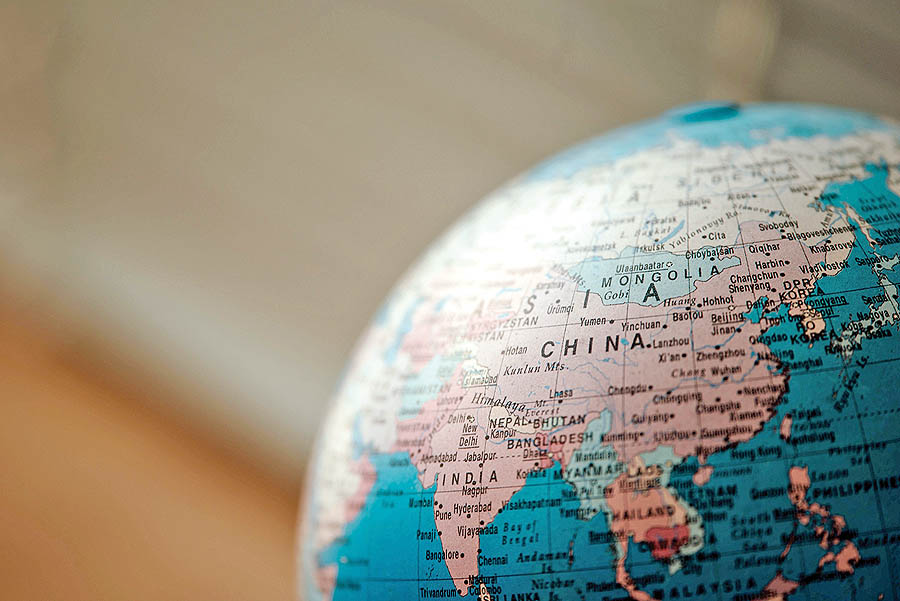Presence of leaders of the four countries shows that both those countries want to develop relations with NATO and also European countries have placed paying attention to the Asia Pacific in the agenda of missions of NATO. If we look back, China has not been mentioned at all in the 2010 document on strategic concept of NATO titled “Active Engagement, Modern Defense”; however, NATO’s perception of China’s threat and consequently the Asia-Pacific region has changed gradually.
The most important manifestation of that change in perception was revealed in the statement of the NATO summit in 2021, in which it is pointed out that China’s growing influence could create challenges that NATO as an alliance should put them on its agenda. According to the statement, China’s declared goals and its bold behavior are a systematic challenge for the international rule-based order. In addition, “NATO Vision 2030”, which was approved by the members in July 2021, while listing China and Russia as countries that weaken such order, also deals with the issue that the rise of China will fundamentally change the balance of power.
The same issue has been referred to in NATO’s strategic concept, which was approved on Wednesday, June 29, 2022. According to the new document, China’s declared goals and ambitions challenge the interests, security and values of the members. Also, the deepening of the Beijing-Moscow strategic partnership has been described as a factor weakening the rule-based international order. The same thing has been repeated in the statement of the Madrid meeting. Such emphasis clearly show the change of attitude of NATO towards the People’s Republic of China.
At the same time, in order to understand NATO’s approach to the Asia-Pacific, the individual or bilateral or multilateral actions and policies of European countries through cooperation with the United States or cooperation with regional countries cannot be ignored. In the meantime, the United States is considered to be an activist that has played a serious role in guiding European countries to adopt a tougher approach against China and its increasing presence in the Asia-Pacific. In the Indo-Pacific strategy document of the White House, which was published in February 2022, while pointing to the attention of American allies and partners outside the Asia-Pacific to this region, it is claimed that the United States seeks to link the Indo-Pacific and the Euro-Atlantic with other regions through joint agendas that will also be the motivation and reason for collective action. The call made by Ben Sasse, the US Republican Senator, for establishing “Pacific NATO” is significant in this regard.
However, it is also necessary to point out that although some European countries had previously expressed concern about the rise of China, the war in Ukraine prepared the ground for greater coordination between the United States and Europe; in other words, the coordination of the parties will not be limited to European issues. In addition, the war in Ukraine has led to increased concerns among China’s rival countries in the Asia-Pacific; because it has fueled some kind of insecurity feeling in those countries.
On the other hand, Beijing, expressing concern about those developments, considers it as the expansion of that military bloc to the Asia-Pacific. Wang Van Bin, the spokesman of the Ministry of Foreign Affairs of China, claimed that NATO has already disturbed the stability in Europe, therefore, it should not pursue such measure in the Asia-Pacific and the entire world. This comment shows well the Chinese perception of the current developments.
In general, such developments show that the security dynamics of the Asia-Pacific region have seriously changed compared to the past. The emphasis of the United States and its allies on the mechanism of the “Quadrilateral Security Dialogue”, known as “QUAD”, establishment of ACOs, the initiative of the “Partners in the Blue Pacific” consisting of the United States, Australia, New Zealand, Japan and Britain, or Beijing’s efforts to advance the “Vision of Joint Development” with an aim of developing relations with the Pacific islands, along with the expansion of competitions and military activities, show the changes achieved. At the same time, as a concluding point, it can be said that cooperation of partners outside the Asia-Pacific with the US policies in this region can be considered as a serious success for the foreign policy of the Biden administration.
Characteristics and Strategic Consequences of Iran’s Historic Response to Zionist Regime
Strategic Council Online—Opinion: There are two different views about the Islamic Republic of Iran’s missile attacks against the Zionist regime. The first view is based on a superficial reading and a reductionist description that evaluates it as a low-impact and not-so-extensive operation. The second view, a realistic reading, sees Iran’s response as opening a new page of “balance of power” and “turning point” in regional equations, the effects and consequences of which will gradually emerge.










0 Comments